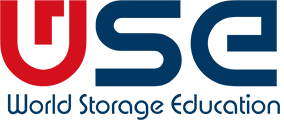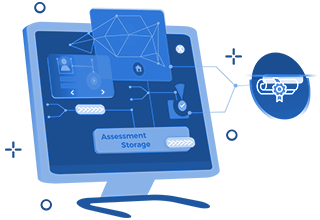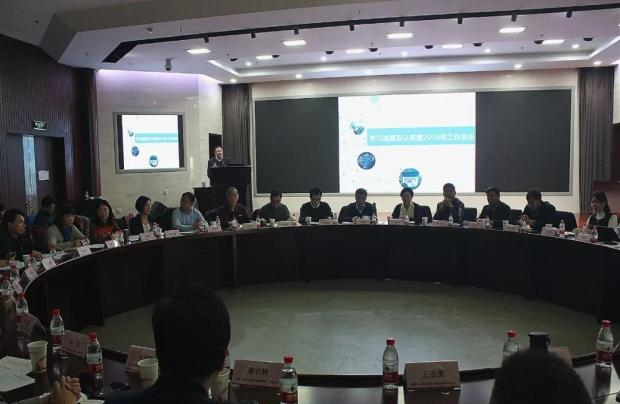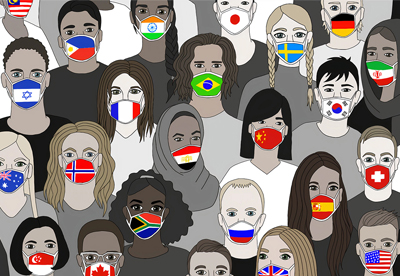Degree Assessed Exchange Center and Beijing Institute of Credit Information for Students Abroad Launch Global Learning Outcome Certification Framework and Found the Mutual Recognition Alliance
Amid growing global emphasis on lifelong learning—advocated by UNESCO, the OECD, and the European Union—education systems worldwide are shifting from diploma-based models to competency- and outcome-oriented recognition frameworks. In alignment with this shift, the Degree Assessed Exchange Center, an independent third-party institution based in Canada, and the Beijing Institute of Credit Information for Students Abroad, a pioneering Chinese organization specializing in non-formal learning recognition, have jointly released a Global Learning Outcome Certification Framework based on “Certification Units + Conversion Rules,” and formally launched the Mutual Recognition Alliance for Learning Outcomes.
This framework provides a standardized and verifiable system for mapping diverse learning outcomes—academic, vocational, online, or non-formal—into a common structure. It lays the groundwork for mutual recognition, accumulation, and conversion of skills across educational levels, sectors, and borders.
A pilot program will initially focus on cross-border recognition between Canada and China, allowing international students and professionals to receive trusted, portable certification for skills and learning experiences acquired in both countries.
Founding Representatives of the Alliance Include:
-
Dr. Jian Yinyiyan, President, Asia-Pacific Business School
-
Prof. Che Yanping, Deputy Director of the Degree Committee, Executive Vice Dean
-
Mr. Zebin, Dean, International Institute, Infrastructure University Kuala Lumpur (Malaysia)
-
Mr. Dong Huijiang, Executive Vice President & Secretary-General, Overseas Education Service Branch, China Population Culture Promotion Association
-
Mr. Liu Hao, Executive Director & Secretary-General, Evaluation Service Committee, China Smart Engineering Research Association
-
Ms. Chen Yongyan, Chairwoman, Zhongliandaen (Beijing) International Institute of Information Science
Numerous experts in competency-based learning, digital credentialing, and global education policy also joined the technical consultations and alliance formation process.
Benchmarking EU Success: Toward Global Interoperability
The framework draws upon best practices from the European Union, including the Digital Education Action Plan, the DigComp Framework, and the European Digital Skills Certificate (EDSC) initiative. It supports modular, outcome-driven, and digitally verifiable learning records, paving the way for global credential transparency and system alignment.
Strategic Collaboration: Canada and China Unite for Trust-Based Certification
In 2025, the Degree Assessed Exchange Center signed a strategic Memorandum of Understanding (MOU) with the Beijing Institute of Credit Information for Students Abroad, the first private institution in China dedicated to converting non-formal and informal learning into trusted, certifiable outcomes.
The Beijing-based institute has served hundreds of thousands of returnees, professionals, and lifelong learners through a blockchain-based credentialing platform. Its Ethereum-powered infrastructure, now supporting over 400,000 verified users, significantly enhances verification speed and data integrity in cross-border recruitment, admissions, and professional credentialing.
Alliance Vision: Standard + Platform + Ecosystem
The Mutual Recognition Alliance for Learning Outcomes will work toward:
-
Creating a unified global standard for certification units and learning outcome structures
-
Establishing a blockchain-supported digital learning record system for cross-border interoperability
-
Defining a global quality label for credential providers and assessors
-
Aligning the framework with DigComp (EU), the OECD Skills Strategy, and UN SDG4 goals
Conclusion
This collaboration between the Degree Assessed Exchange Center and the Beijing Institute of Credit Information for Students Abroad is more than bilateral—it is foundational. It represents a new stage in building transparent, standards-aligned, and digitally verifiable learning ecosystems. By combining Canada’s evaluation expertise with China’s digital infrastructure, this partnership offers a scalable path to global learning mobility, trust, and equity.
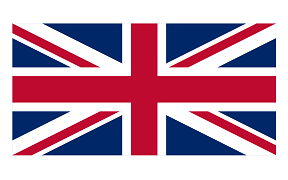 English
English Français
Français 日本語
日本語 中文
中文 한국어
한국어 Русский
Русский